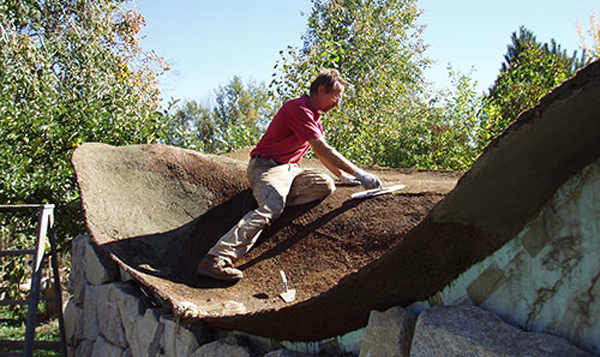
[Image above] Credit: The University of Arizona; YouTube
Accidents happen—as do “oops” that become eurekas.
One such whoops-to-wow moment occurred in the lab of former University of Arizona Ph.D. student David Stone.
The accident in question? Ferrock—an eco-friendly substitute for Portland cement that, according to a Tech Launch Arizona article, is “significantly stronger.”
The manufacture of Portland cement accounts for 5% of total global carbon emissions, and though more of it is being recycled (some 140 million tons of concrete are recycled each year in the U.S., according to the Construction & Demolition Recycling Association), that doesn’t stop researchers from searching for ways to green up the material.
(Click here to read about findings from an MIT team that show a reduction in the ratio of calcium to silicate could curb emissions while boosting concrete’s strength).
Ferrock, which scored Stone a win in a student innovation competition some years ago, is being developed in collaboration with Tech Launch Arizona.
The “cement-like” material is “environmentally superior, sustainable, and stronger than conventional cement,” according to the Tech Launch article. The article is light on details, but says the material “uses the waste steel dust from industrial processes.”
It’s also carbon negative. Rather than releasing the carbon, it traps it, diffusing and absorbing the element into itself. The iron in Ferrock mixes with carbon, creating iron carbonate and becoming part of the material’s makeup (i.e., basically the comic-book equivalent of Bruce Banner absorbing gamma rays and becoming the Incredible Hulk).
“It has taken years to get just a basic understanding of the chemistry involved,” says Stone in the article. “But this shouldn’t be surprising since scientists are still trying to figure out Portland cement and they’ve had 200 years. I am into this for the long haul. Time is on our side since in this era of global warming, unsustainable processes like cement manufacture will have to give way to greener alternatives.”
The technology is being licensed from the University of Arizona and will be commercialized by Stone’s new startup, Iron Shell LLC.
“The formation of Iron Shell promises to be very exciting,” says Tech Launch Arizona’s Doug Hockstad. “The technology stands to impact the world in a variety of ways, including both reduction of carbon dioxide production and sequestration of other carbon dioxide production, as well as recycling of waste products such as steel waste and in some cases, recycled glass. For all that, this represents an amazing engineering achievement that has the potential to create a great, positive impact on the environment.”
Credit: The University of Arizona; YouTube
Listen to Stone talk Ferrock in the video above.
Do you think Ferrock will rock concrete as we know it? Sound off below.
